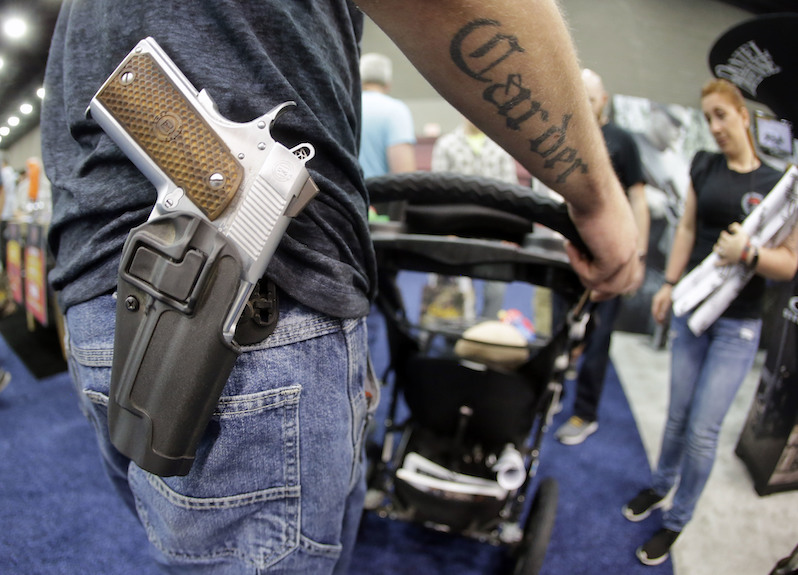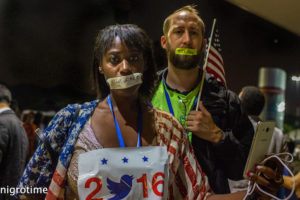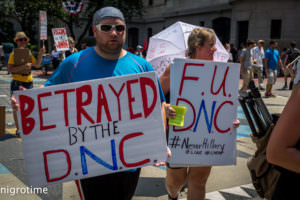Our Skewed Politics on Gun Ownership Are a Deadly Joke
The National Rifle Association and lawmakers who pander to it bear much of the blame for our ridiculous gun laws, but it’s up to ordinary Americans to fix the problem. A man wears his handgun in a holster as he pushes his baby in a stroller at the National Rifle Association convention in Louisville, Ky., in May. Attendees were permitted to carry firearms under Kentucky's open-carry law. (Mark Humphrey / AP)
1
2
A man wears his handgun in a holster as he pushes his baby in a stroller at the National Rifle Association convention in Louisville, Ky., in May. Attendees were permitted to carry firearms under Kentucky's open-carry law. (Mark Humphrey / AP)
1
2

A man wears his handgun in a holster as he pushes his baby in a stroller at the National Rifle Association convention in Louisville, Ky., in May. Attendees were permitted to carry firearms under Kentucky’s open-carry law. (Mark Humphrey / AP)
Independent journalism is under threat and overshadowed by heavily funded mainstream media.
You can help level the playing field. Become a member.
Your tax-deductible contribution keeps us digging beneath the headlines to give you thought-provoking, investigative reporting and analysis that unearths what's really happening- without compromise.
Give today to support our courageous, independent journalists.





You need to be a supporter to comment.
There are currently no responses to this article.
Be the first to respond.